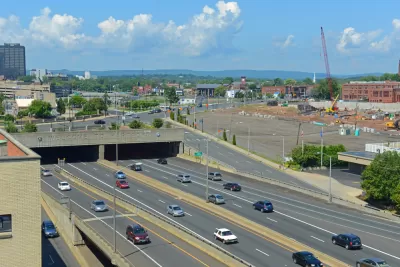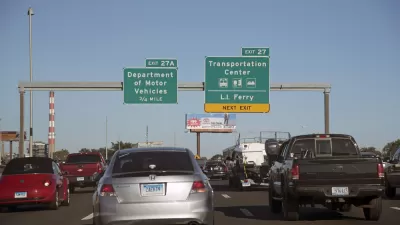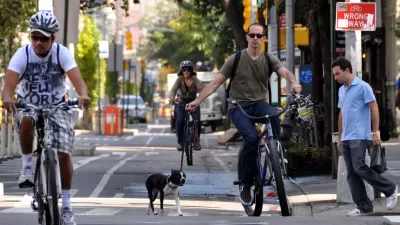A representative of the Regional Plan Association calls for Connecticut's political leadership to go even further in changing the transportation and land use planning paradigm in the state.

Melissa Kaplan-Macey, vice president of state programs and Connecticut director at the Regional Plan Association, writes an opinion piece for the Hartford Courant making the case for a paradigm shift in transportation funding in the Constitution State.
The opinion piece follows shortly on the heals of Connecticut Governor Ned Lamont releasing a new $21 billion capital investment plan called CT2030, which Kaplan-Macey describes as a good, but not perfect, start to achieving the changes called for in the article.
The overarching goal of the plan is to reduce commute times and improve commuter experience. It includes highway improvement projects that seek to reduce congestion, rail improvement projects that speed commutes and limited bus transit investment. It proposes funding these improvements with a mix of federal low-interest loans and revenue from a long-overdue electronic tolling system.
Here's the "not perfect" part:
But the state should reconsider its pursuit of highway expansions that induce traffic and increase air pollution. Instead, the state should manage demand on existing roadways and invest in public transit.
To make the case for an urban focus on transportation spending and additional public transit investments, Kaplan-Macey explains induced demand, cites the rising demand for walkable neighborhoods with access to public transit, laments Connecticut's historic neglect of its urban centers, and builds a counter argument for the already emerging Republican opposition to the CT2030 proposal.
FULL STORY: We should invest in urban centers, not expand highways to get around them.

Maui's Vacation Rental Debate Turns Ugly
Verbal attacks, misinformation campaigns and fistfights plague a high-stakes debate to convert thousands of vacation rentals into long-term housing.

Planetizen Federal Action Tracker
A weekly monitor of how Trump’s orders and actions are impacting planners and planning in America.

In Urban Planning, AI Prompting Could be the New Design Thinking
Creativity has long been key to great urban design. What if we see AI as our new creative partner?

Milwaukee Launches Vision Zero Plan
Seven years after the city signed its Complete Streets Policy, the city is doubling down on its efforts to eliminate traffic deaths.

Portland Raises Parking Fees to Pay for Street Maintenance
The city is struggling to bridge a massive budget gap at the Bureau of Transportation, which largely depleted its reserves during the Civd-19 pandemic.

Spokane Mayor Introduces Housing Reforms Package
Mayor Lisa Brown’s proposals include deferring or waiving some development fees to encourage more affordable housing development.
Urban Design for Planners 1: Software Tools
This six-course series explores essential urban design concepts using open source software and equips planners with the tools they need to participate fully in the urban design process.
Planning for Universal Design
Learn the tools for implementing Universal Design in planning regulations.
Gallatin County Department of Planning & Community Development
Heyer Gruel & Associates PA
JM Goldson LLC
City of Camden Redevelopment Agency
City of Astoria
Transportation Research & Education Center (TREC) at Portland State University
Jefferson Parish Government
Camden Redevelopment Agency
City of Claremont





























